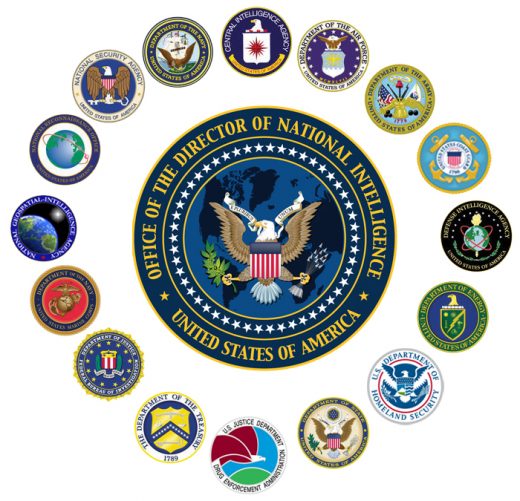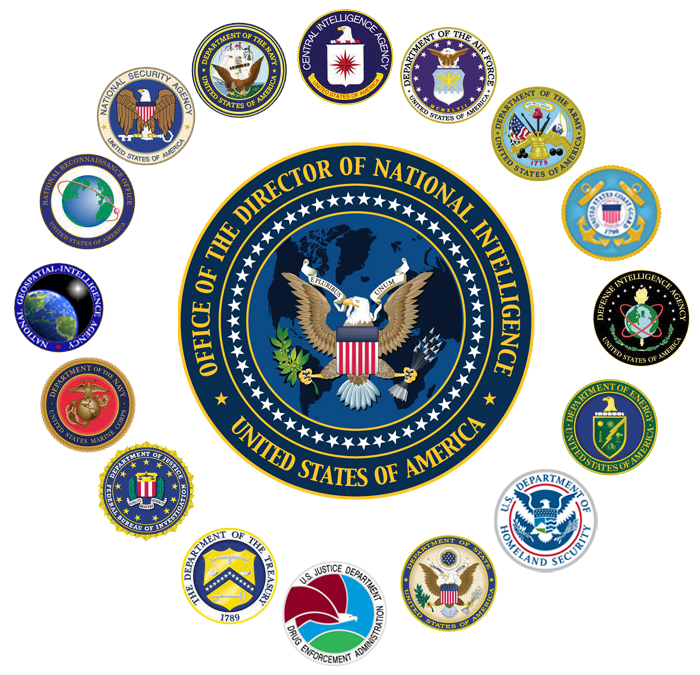The Downside of Donald Trump’s Fight with the Intelligence Community
The Downside of Donald Trump’s Fight With the Intelligence Community
Donald Trump’s war against the U.S. intelligence community might look, at first, like just another convention-breaking move designed to bring a disruptive, reality TV ethos to the world of politics and government. But intelligence officials and members of Congress say Trump’s decision to contest his own government’s “high confidence” conclusion that Russia meddled in the presidential election is a huge gamble that could cause harm to both his own presidency and the security of the country.
Take North Korea where, some U.S. intelligence officials have concluded, dictator Kim Jong Un is on his way to being able mount a nuclear weapon atop a missile that can reach the United States. Trump may need to rally support at home and abroad for action against Pyongyang, and will need to cite the work of the intelligence community to do so. And there are no shortage of other crises facing the U.S. around the globe that require similar credibility.
“There’s going to come a time during a national security crisis where we need to believe the president, and the things that he’s saying and doing right now are going to lead everyone to question whether they can rely on anything he says,” says the top Democrat on the House intelligence committee, Adam Schiff, who has been critical of Trump’s denials.
Trump may find himself personally vulnerable, too. The same kind of Russian hacking attacks he now dismisses as unprovable, may be turned on him if he breaks with Russian president Vladimir Putin on one of the many areas of potential policy disagreement between the two countries. “If the time comes when the Russians feel they need to use hacked information against President Trump, the President-elect won’t have much credibility on the issue having denied the Russians were even involved,” Schiff says.
On Sunday, Trump stepped up his attacks on the intelligence community for its assessment that Russia had hacked state voter rolls and the email accounts of officials in the Clinton campaign and the Democratic party as part of a large scale effort to get him elected President. “They have no idea if it’s Russia or China or somebody. It could be somebody sitting in a bed some place,” Trump said on Fox News. His campaign previously released a statement that said, “These are the same people that said Saddam Hussein had weapons of mass destruction.”
Partially in response to Trump’s decision to contest the conclusions about Russian involvement, President Obama has ordered the intelligence community to produce a full review of Russia’s malicious cyber-activity. The purpose of the review, says one source close to it, is not just to assess the effect of the Russian operation, but to establish a record of the intelligence community’s findings before Trump takes over command of the sprawling national security agencies. The administration has said it intends to make a declassified version of the report public before Obama steps down from office.
“This is a major priority for the President of the United States,” deputy White House press secretary Eric Schultz said Friday. “He directed his intelligence community and national security officials to take this on. He expects that report to be issued to him before he leaves office.”
Trump will also face pressure from Congress, where Republicans have long been the most aggressive opponents of the Putin regime. On Sunday, Sen. John McCain, who heads the Armed Services Committee, issued a statement with other Republicans and Democrats saying, “recent reports of Russian interference in our election should alarm every American.” McCain intends to hold hearings on Russian cyber-activity next year.
The House intelligence services may also look into the hacking. The Republican Chairman, Devin Nunes, is in a difficult position. He has long been critical of Russia, but is also helping Trump with the transition. On Dec. 8, he told the Washington Post, “[Russia]’s always been a priority for me, and it will remain a priority for me.” Then on Dec. 9, he told the paper, “I’ll be the first one to come out and point at Russia if there’s clear evidence, but there is no clear evidence — even now.”
As Nunes’ Democratic counterpart on the House intelligence committee, Schiff says Trump is also vulnerable to coercion over his businesses. “There’s still a lot we don’t know about the President’s economic interests,” he says. “We simply don’t know what economic interests he has in Russia or Russia’s neighbors.”
On Sunday Trump also said he was frequently skipping the daily intelligence briefing and letting Vice President-elect Mike Pence go in his stead because “I’m, like, a smart person, I don’t have to be told the same thing in the same words every single day.” But come a national, or political, crisis, Trump may find publicly undermining the credibility of the intelligence community wasn’t such a great long-term play.
(76)














